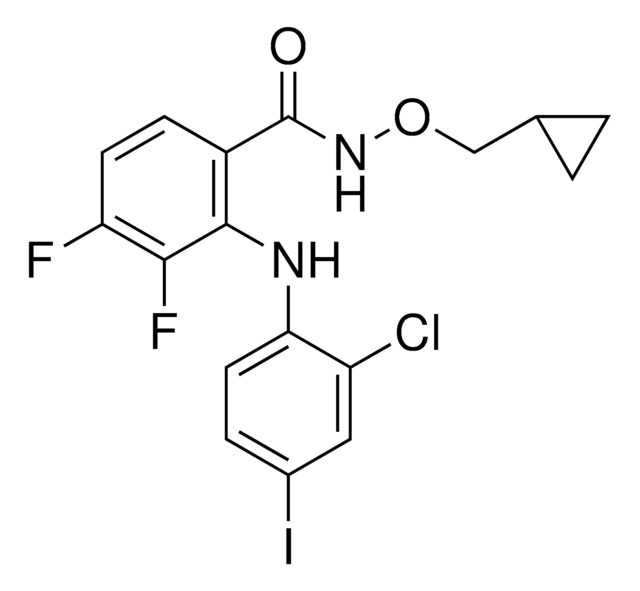RDD002
HEPES
≥99.5%, crystalline powder, anhydrous, Redi-Dri™
Synonym(s):
4-(2-Hydroxyethyl)piperazine-1-ethanesulfonic acid, N-(2-Hydroxyethyl)piperazine-N′-(2-ethanesulfonic acid)
Select a Size
Select a Size
About This Item
Recommended Products
Product Name
HEPES, anhydrous, free-flowing, Redi-Dri™, ≥99.5%
grade
anhydrous
Quality Level
product line
Redi-Dri™
assay
≥99.5%
form
crystalline powder
quality
free-flowing
pH
5.0-6.5 (25 °C, 238 g/L)
useful pH range
6.8-8.2
pKa (25 °C)
7.5
Looking for similar products? Visit Product Comparison Guide
General description
Application
- In the novel vesicle-budding protocol as a component in stock solution and buffer solutions
- As a component in intracellular solution for the preparation of brain-slice recording
- As a component of wash buffer, elution buffer and desalting buffer during affinity protein purification
- To maintain the pH at 7 in thermal denaturation assay of purified protein
- In isocratic elution of protein using gel filtration
- Along with NaCl in sample preparation for EPR (Electron Paramagnetic Resonance) spectroscopy
Legal Information
Storage Class
13 - Non Combustible Solids
wgk_germany
WGK 1
flash_point_f
Not applicable
flash_point_c
Not applicable
Choose from one of the most recent versions:
Certificates of Analysis (COA)
Don't see the Right Version?
If you require a particular version, you can look up a specific certificate by the Lot or Batch number.
Already Own This Product?
Find documentation for the products that you have recently purchased in the Document Library.
Customers Also Viewed
Articles
Redi-Dri™ prevents hygroscopic powders, such as inorganic salts, from absorbing moisture and forming clumps, leaving the salts free-flowing every time.
Our team of scientists has experience in all areas of research including Life Science, Material Science, Chemical Synthesis, Chromatography, Analytical and many others.
Contact Technical Service



